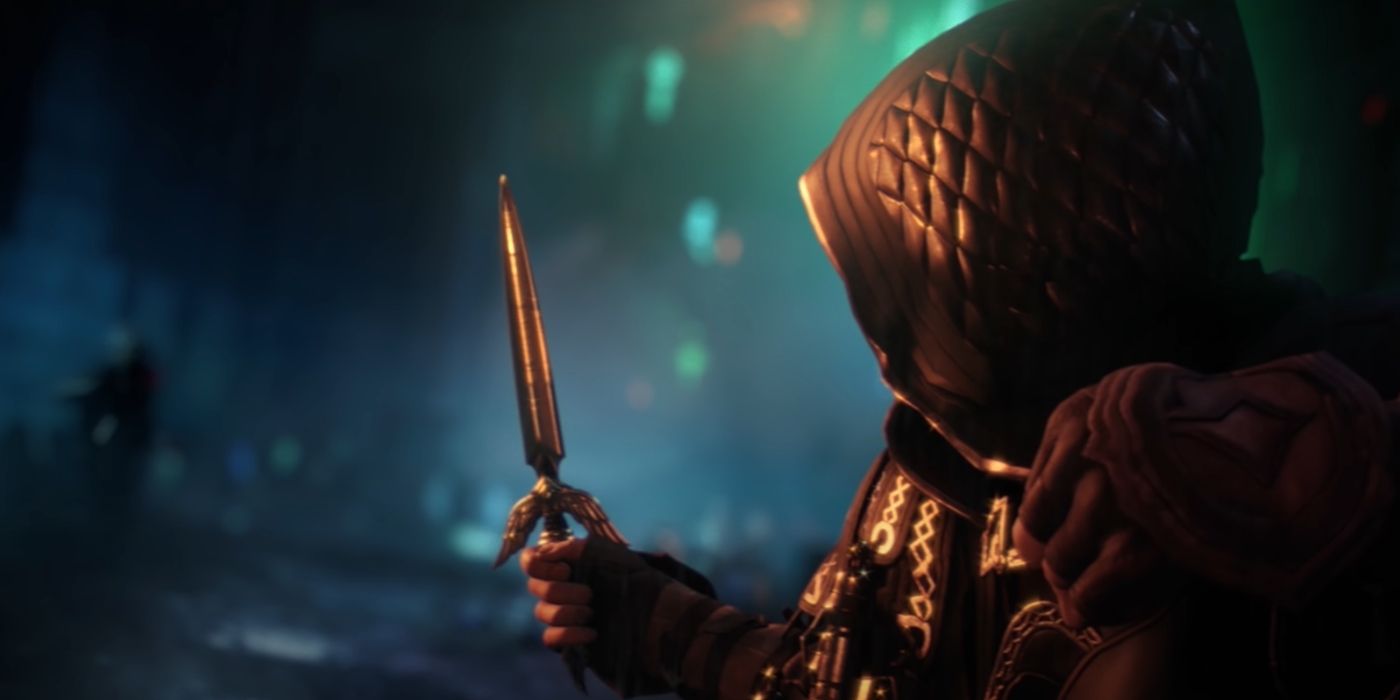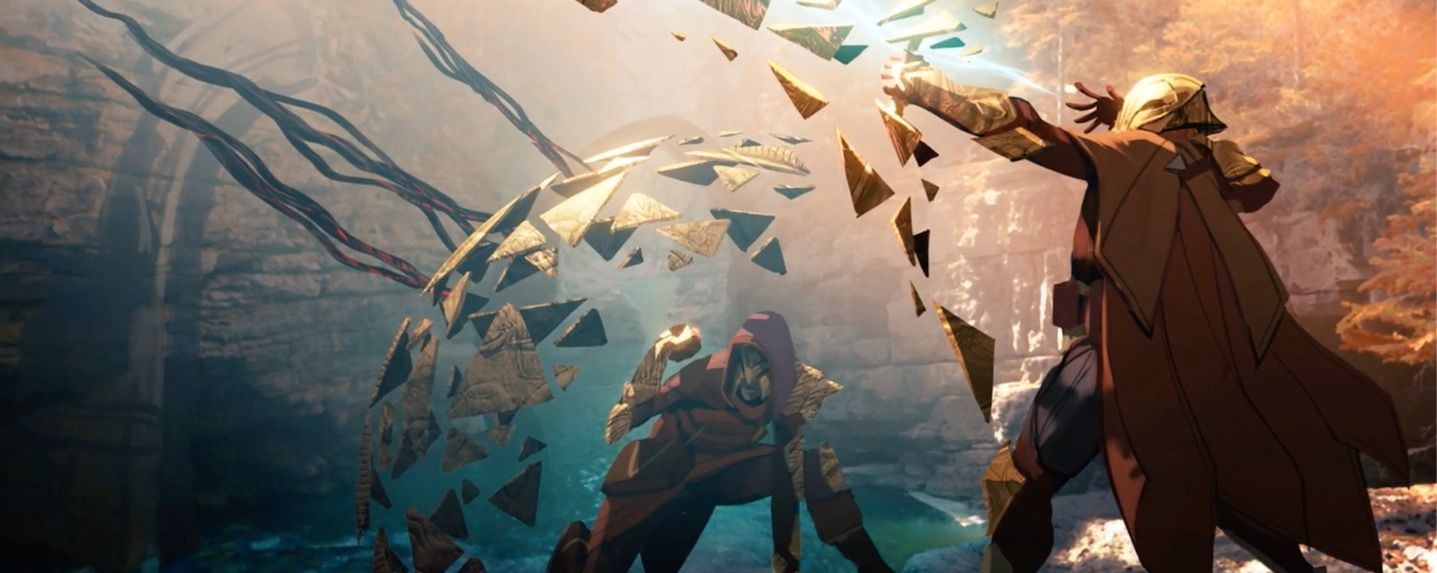
BioWare is returning to its two major flagship franchises with Dragon Age 4 and the next chapter in the Mass Effect franchise, for now assumed to be Mass Effect 4. After the disappointing reception of the studio’s last attempt at a new IP, Anthem, the turn will not come as a surprise to many fans, who will be hoping that the two upcoming games can get BioWare back on track.
However, if Dragon Age 4 and Mass Effect 4 are going to do more than just retread old ground, both BioWare games will need to change how they handle side quests. Here’s how questing and its consequences have been broken down in BioWare games so far, and why that needs to change for the next generation.
RELATED: Main Characters Who Likely Won't Make it to Mass Effect 4

In an ideal world an RPG would be completely reactive. Every dialogue choice would matter, every decision no matter how big or small would have an impact on how events unfold, and so on. Naturally, creating this in practice would be almost impossible due to the time constraints on developers. However, BioWare’s side quests often miss opportunities for interaction with the rest of the story.
Mass Effect 2, for example, essentially has three main kinds of quest. There are the main quests like the dossier recruitment missions and the story that follows. Then there are side quests, usually intended to be completed while in the same area as main quests for rewards like extra items or credits. Finally, there are companion loyalty missions, which directly impact the fate of the character in the story.
In a Dragon Age games like Dragon Age: Origins, quests also break down roughly along these same lines. Side quests almost never have an impact on the main quest, while loyalty missions arise throughout the game with implications for the fate of various companion characters.
In Dragon Age 4 and Mass Effect 4, BioWare needs to find opportunities for completely optional side quests and the decisions made in them to have implications for the main story. Dragon Age: Inquisition already showed how some loyalty missions and romances can make a huge difference when they later have implications for the main plot. Romancing Solas as a female elf ends up being far more closely tied to the main story and ultimately more compelling, for example, than romancing Sera.
Other examples of romances intertwined with main plots be found in Dragon Age. Romancing Morrigan in the first game becomes very plot-relevant when part of her plan to help the Warden escape dying to defeat the Archdemon involves channeling the creature’s soul into an unborn child. The vast majority of BioWare romances across the Mass Effect and Dragon Age games, however, have little impact on the main plot beyond a few extra lines of dialogue.
RELATED: Dragon Age 4 Fans Shouldn't Be Worried About 'Live Service' Elements

BioWare needs to go beyond the occasional integration of its romantic plotlines into its overarching stories. The studio should find opportunities for events and consequences from completely optional side quests to become relevant later on in the main story. For example, there could be a key moment where Dragon Age 4's player character is seemingly cornered by the city guard. Suddenly, a character from an optional side quest comes to their rescue, giving the player the feeling that even their small decisions matter in the world.
If the player hadn’t completed any side quests by the time they reach that situation, they might simply have to fight their way out, preserving the opportunity for a returning side quest character but avoiding it becoming a necessity. Similarly, if the Dragon Age player completed multiple side quests the game could either choose one of those characters to come to the player’s rescue, or those characters might all come to their rescue at once.
There is already some degree to which Dragon Age has side quests that impact the main plot. The player doesn’t need to rescue Sten the qunari, a main companion character in Origins first found in a cage in the village of Lothering, for example. However, the game strongly encourages the player to complete that quest, and almost all Dragon Age: Origins playthroughs involve recruiting Sten as a result. It's an option, but it's not a great one. To not recruit Sten simply means the player will miss out on a key part of the game. What BioWare needs to do is to create opportunities for truly optional side quests and interactions to affect the story at certain moments. This will help create diverse playthroughs where the player’s choices feel more holistically meaningful than in older BioWare games. Unlike the Sten example, players should be expected or even incentivized to miss some of these opportunities, giving each playthrough a different feel that appears more reactive to the player’s actions.

In one sense, creating these scripted opportunities for side quest characters to influence the main plot only creates an illusion of true reactivity. Ultimately there’s no clear way to factor those returning side quest characters into the main plot after their brief return, and trying to do so would likely create too many different story possibilities to develop properly. However, the more opportunities BioWare creates for side quests in Mass Effect and Dragon Age to have even minor impacts on the games' main plots, the stronger that illusion will be. The more moments there are, the harder it will become to distinguish scripted opportunities for reactivity from the kind of truly dynamic and reactive game world RPG developers have been promising for years.
If Dragon Age 4 and Mass Effect 4 are going to feel like the next-gen successors to the earlier installments in their respective franchises, then the consequences of all of the player’s choices should be reflected in the game’s main plot when the opportunities arise. BioWare's romances should have the opportunity to get in the way in dangerous situations. The consequences of side quests and optional activities shouldn’t feel completely distinct from the main narrative. Both franchises will need to find new ways to create stories which feel reactive, or BioWare’s return to its most famous series could come without the necessary innovations to keep those series exciting.
Dragon Age 4 and a new Mass Effect game are currently in development at BioWare.
MORE: One Dragon Age 2 Plotline Could Have Huge Implications for Dragon Age 4

